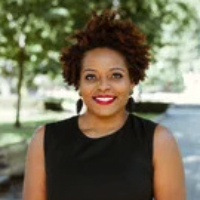 Carmel Estate Lawyers, Indiana
Carmel Estate Lawyers, Indiana
Sponsored Lawyers
1-10 of 59 matches
Divorce & Family Law, Family Law, Criminal, Divorce, Wills & Probate
At Swenson & Associates, we strive to provide you with the excellent legal representation that you need. We are available to hear your concerns and questions and it is our goal to provide you with assistance in getting through what are likely to be your life's most difficult and trying times. We are here to support you and stand by your side while defending your best interests. Please visit our website at CarmelLawOffice.com.
(more)Estate
Joshua Robertson concentrates in the areas of real estate litigation, business litigation, criminal defense and personal injury litigation in both state and federal court. Mr. Robertson received his Bachelor of Arts from Indiana University - Bloomington in 1996. He attended Indiana University School of Law - Indianapolis, earning his Juris Doctorate in 2001. While in law school, Mr. Robertson earned several scholarships through the law school's Program in International Human Rights Law whereby he served internships with a human rights organization in Kathmandu, Nepal and with the United Nations in Geneva, Switzerland. Mr. Robertson joined Cohen Garelick & Glazier in May 2005 after practicing in Johnson County, Indiana for several years. Mr. Robertson is a member of the Sagamore American Inn of Court and is a member of the Indianapolis Bar Association and the Indiana Bar Association. He is admitted to practice before the Indiana Supreme and Appellate Courts and the United States District Court for the Southern District of Indiana. In addition to his legal work and affiliations, Mr. Robertson serves as Vice President of the Board of Directors of Riley Area Development Corporation (http://rileyarea.org), a non-profit community development corporation focused on the development of Indianapolis' urban neighborhoods; and also serves as Chairman of R.A.D.C.'s Asset Management Committee.
(more)Estate, Employment
Amber K. Boyd is a versatile professional with strong experience in managing complex litigation matters. She founded Amber K. Boyd Attorney at Law in 2013, where she is the sole practitioner. Ms. Boyd specializes in employment law with a focus on discrimination cases. She also has deep expertise in estate planning and probate law. Her goal is to deliver effective, efficient, and strategic service to her clients. Ms. Boyd always keeps her eye on winning at trial. She has established a track record of securing large settlements for her clients that often exceed what the defendant or employer had offered. Ms. Boyd clearly explains complex legal issues to her clients and ensures witnesses are well-prepared to testify. She has years of experience litigating in federal and state court, and she has mediated cases through the Equal Employment Opportunity Commission. Before founding her law firm, Ms. Boyd served as a compliance officer at a national mortgage company in Indianapolis, where she managed 19 law firms nationwide. She evaluated attorney compliance with policies, procedures, service level agreements, and state and federal requirements. Ms. Boyd also provided litigation support to executive management and internal and external counsel, and she completed a root cause analysis of foreclosure issues to identify process improvements. Ms. Boyd is a member of the Marion County Bar Association, the Indianapolis Bar Association, and the American Bar Association Labor and Employment Division. She is also a board member of the Mapleton-Fall Creek Neighborhood Development Corporation as well as a member of the Delta Sigma Theta Sorority, Inc.
(more)






